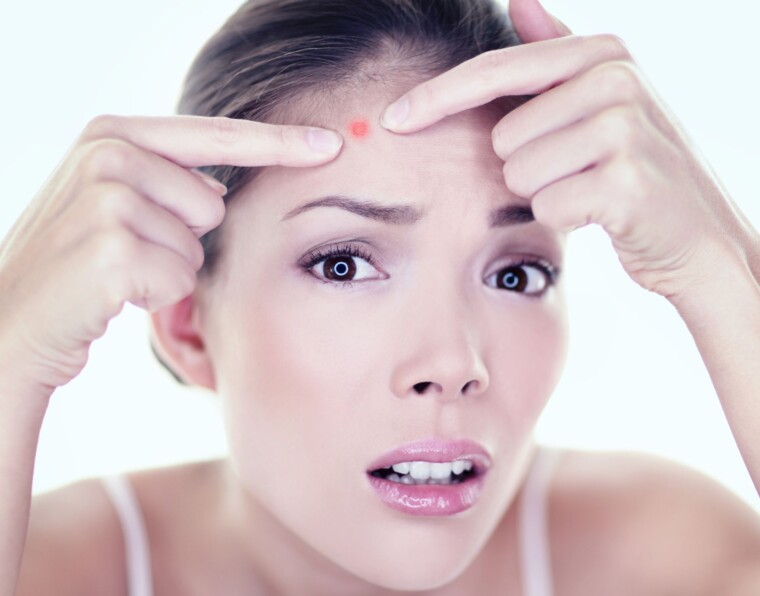We all know that stress can take a toll on our mental and physical health, but did you know that it can also affect our skin? Stress and sensitive skin go hand in hand, as both can lead to skin issues such as breakouts, redness, and irritation. In order to maintain healthy skin, it’s important to manage both stress and sensitive skin.
What is Stress and Sensitive Skin?
Stress is a feeling of mental and physical unease caused by pressure or demands. It can lead to a variety of physical and mental health issues, including skin issues. Sensitive skin is skin that is easily irritated and prone to reactions. It can cause redness, itching, and burning.
Benefits of Managing Stress and Sensitive Skin
Managing stress and sensitive skin can help to improve overall skin health. It can reduce inflammation, prevent breakouts, and help to keep skin looking its best.
Tips for Managing Stress and Sensitive Skin
There are a variety of lifestyle changes and skin care tips that can help to manage stress and sensitive skin:
Get Adequate Sleep: Getting enough sleep is essential for overall health, including skin health. Aim for 7-8 hours of quality sleep per night.
Exercise Regularly: Exercise has been proven to reduce stress and help to keep skin healthy. Try to get at least 30 minutes of exercise per day.
Eat Healthy Foods: Eating a balanced diet can help to maintain skin health. Incorporate plenty of fruits, vegetables, and healthy fats into your diet.
Practice Relaxation Techniques: Taking time to relax is essential for managing stress. Try yoga, meditation, or deep breathing exercises to help reduce stress.
Avoid Harsh Skin Care Products: Harsh skin care products can worsen sensitive skin. Look for products that are free from fragrance, parabens, and sulfates.
Avoid Excessive Sun Exposure: Too much sun exposure can worsen sensitive skin. Wear sunscreen every day and limit sun exposure when possible.
Natural Remedies for Stress and Sensitive Skin
There are a variety of natural remedies that can help to manage stress and sensitive skin:
Coconut Oil: Coconut oil is a natural moisturizer that can help to soothe sensitive skin.
Aloe Vera: Aloe vera is a natural anti-inflammatory that can reduce redness and irritation.
Tea Tree Oil: Tea tree oil is a natural antiseptic that can help to reduce breakouts.
Essential Oils: Essential oils such as lavender and chamomile are known for their calming effects.
Professional Treatments for Stress and Sensitive Skin
There are also professional treatments available for stress and sensitive skin:
Laser Treatments: Laser treatments can help to reduce redness and inflammation.
Chemical Peels: Chemical peels can help to reduce breakouts and improve skin texture.
Microneedling: Microneedling can help to reduce the appearance of wrinkles and fine lines.
Conclusion
Managing stress and sensitive skin is essential for maintaining healthy skin. Getting enough sleep, exercising regularly, eating healthy foods, and practicing relaxation techniques can all help to reduce stress. Natural remedies such as coconut oil, aloe vera, tea tree oil, and essential oils can help to soothe sensitive skin. Professional treatments such as laser treatments, chemical peels, and microneedling can also help to improve skin health. With the right combination of lifestyle changes and skin care treatments, you can keep your stress and sensitive skin under control.
FAQ
1: Can stress cause skin peeling on hands?
Yes, stress can contribute to skin peeling on the hands. Stress can trigger or exacerbate skin conditions like eczema, psoriasis, or contact dermatitis, which can all cause skin peeling. Additionally, stress may cause people to engage in behaviors like excessive hand-washing, which can strip the skin of its natural oils and lead to dryness and peeling.
2: What does stressed skin look like?
Stressed skin can manifest in various ways, depending on the individual and the severity of the stress. Some common signs of stressed skin include:
Redness or inflammation
Breakouts and acne
Dryness and flakiness
Dull or lackluster appearance
Increased sensitivity or irritation
Fine lines and wrinkles
It’s essential to remember that stressed skin might look different from person to person, and these symptoms can also be caused by factors other than stress.
3: Where does stress acne show up on sensitive skin?
Stress acne can appear anywhere on the body, but it’s most commonly found on the face, particularly in the T-zone (forehead, nose, and chin). Stress causes the body to produce more cortisol, a hormone that increases oil production in the skin. This excess oil can clog pores, leading to breakouts. Sensitive skin may be more prone to inflammation and irritation, which can exacerbate acne symptoms. Additionally, stress can weaken the skin’s barrier function, making sensitive skin even more susceptible to breakouts.
4: Can stress cause skin darkening?
Yes, stress can contribute to skin darkening, though it is not the only factor. Stress can cause an increase in the production of cortisol, which can lead to an overproduction of melanin, the pigment responsible for skin color. This overproduction can cause dark spots or uneven skin tone. Other factors like sun exposure, hormonal changes, and certain medications can also contribute to skin darkening.




